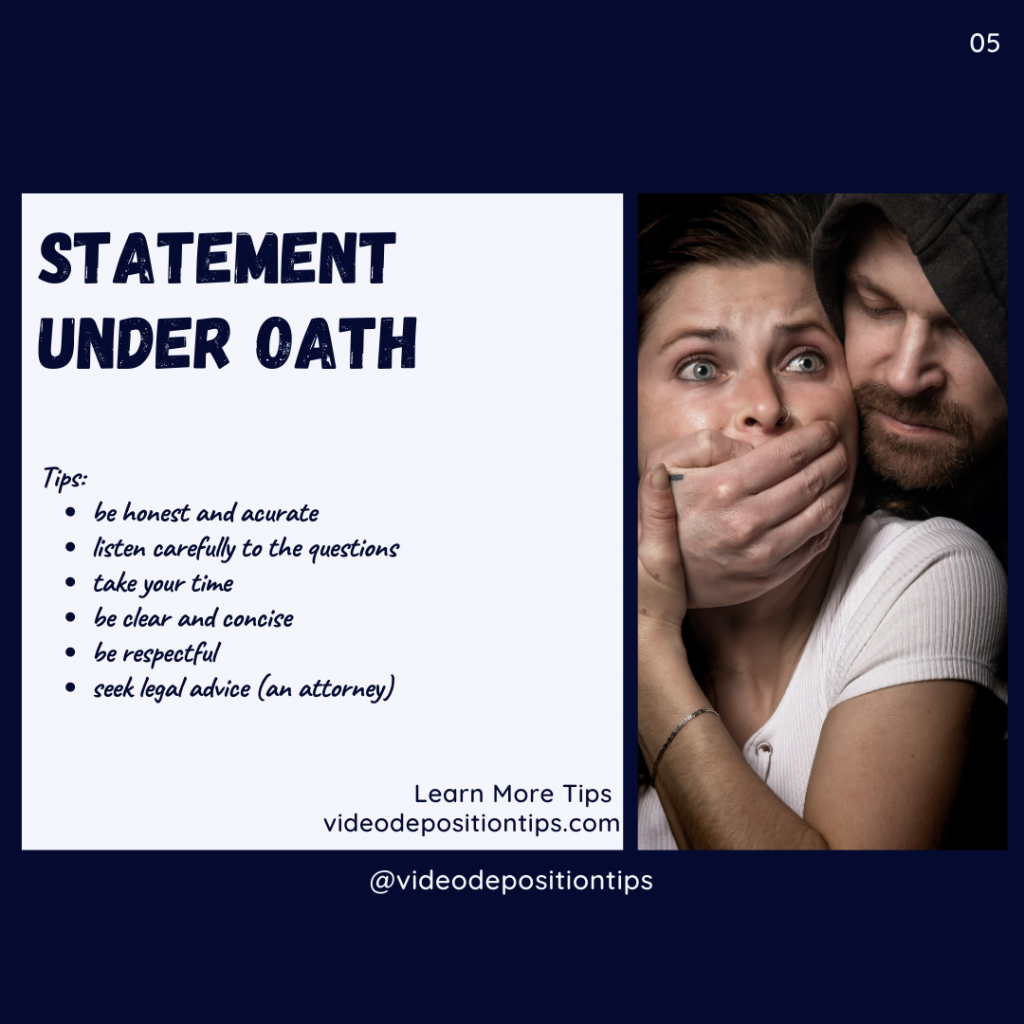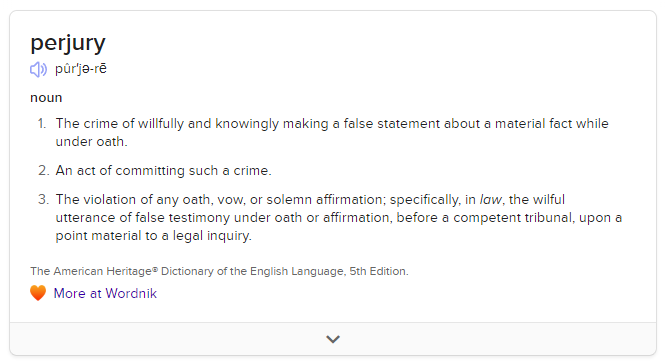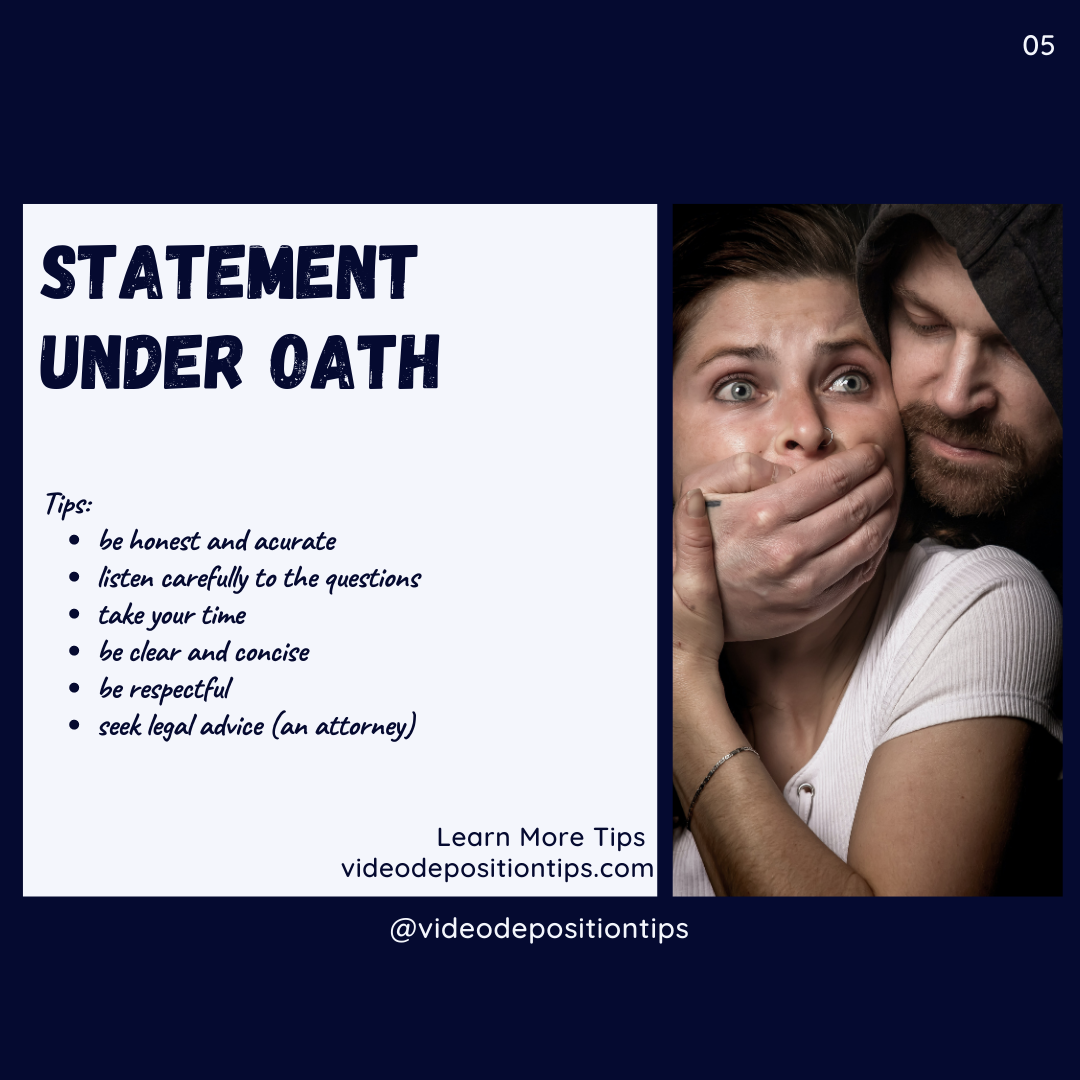Below here you’ll see some great resources and a list of tips (and tricks) to help in giving your Statement Under Oath.
One more tip, we encourage you to save this page or share it with someone who’s along with you on this journey so you can remember how to give a statement under oath without making mistakes.

Giving a statement under oath means that you are making a formal, sworn declaration that the information you are providing is true and accurate to the best of your knowledge. When you give a statement under oath, you are essentially making a promise to the court that you will tell the truth, and if you do not, you could be charged with perjury, which is a criminal offense.

Giving a sworn statement can be risky because you are responsible for the accuracy and truthfulness of your statement. You probably don’t want to go to jail, but if you lie here on video – then you could potentially be heading to jail.
If you make a mistake or intentionally provide false or misleading information, you could be subject to criminal charges. It is important to be careful and thorough when giving a sworn statement, and to make sure that you have a clear understanding of the events you are describing.
Here are some tips for giving a sworn statement on a court case:
- Be honest and accurate: It is important to be truthful and accurate when giving a sworn statement. Do not exaggerate or provide false information, even if you think it will help your case.
- Listen carefully to the questions: Pay attention to the questions being asked, and make sure you understand them before you answer. If you are not sure what a question means, ask for clarification.
- Take your time: You do not need to rush your answers. Take your time to think about your responses and make sure you are giving a complete and accurate answer.
- Be clear and concise: Keep your answers focused and to the point. Do not provide unnecessary or irrelevant information.
- Be respectful: Remember that you are in a formal legal setting, so it is important to be respectful and courteous to everyone involved in the case, including the judge and any lawyers or witnesses.
- Seek legal advice: If you are unsure about anything related to your statement or the case, it is a good idea to seek legal advice from an attorney. They can help you understand your rights and responsibilities and provide guidance on how to proceed.
Learn Statement Under Oath Tips:


